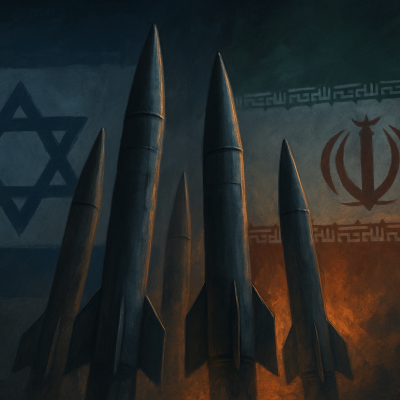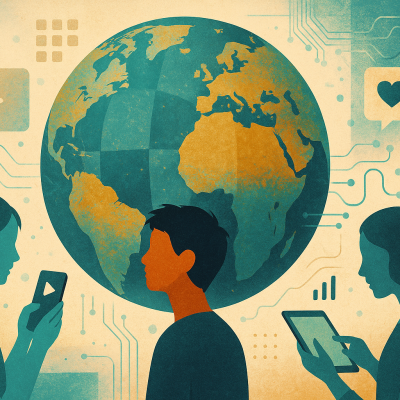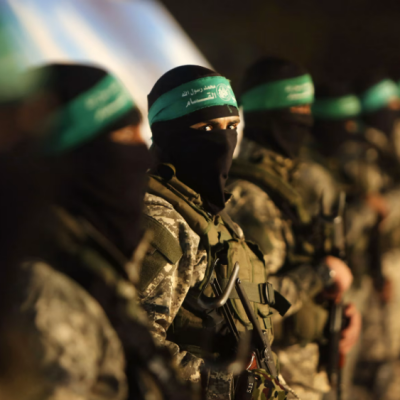By: Sayed Ghoneim
Introduction
Many people may not imagine the nature of the link between the Middle East and Indo-Pacific countries. Some analysts may rule out the Middle East as a theater of competition between actors Indo-Pacific region, but current events confirm this.
The conflict does not take a rough form all the time, but it may take other soft forms of attempts to extend influence and hegemony, which will be clear from my Paper.
First: The Relationship Between Middle East and Indo-Pacific:
I will, very briefly and on separate basis, address the relations between the Middle East and the Indo-Pacific region through its most important nations: USA, Japan, China, India and Australia. I will also specify the Middle East and the Indo-Pacific regions that I will be addressing.
- Indo-Pacific:
It is the geographical biological area that covers the Indian and Pacific Oceans and encompasses the Equatorial water of the Indian Ocean, west and mid the Pacific Ocean and the seas which links both in the general area of Indonesia which does not include the polar areas of the Indian and Pacific Oceans
- The Middle East:
I will address the Middle East from a stand point that includes North Africa; which makes it a larger region extending across two continents from Mauritania in North Africa to the west to Iran in the west of Asia in the east comprising 21 nations including Turkey and Sudan. Moreover, the Middle East region is in an economic and security contact with the Horn of Africa
in the south, such a region cannot be excluded in all the relations of the Middle East.
- Indo- pacific strategy “Free & Open Indo-Pacific – FOIP”
Japanese Prime Minister Shinzo Abe announced the first FOIP strategy without naming it during a speech to the Indian Parliament in 2007. He has noted that the Indian and Pacific Ocean region was a cornerstone of the security and stability of the international community. Since that event, efforts to Prepare and formulate them have been under way for them to be in their current content.
Mr. Abe’s announcement of the strategy with its current name has been made in 2016 during the TICAD Summit in Nairobi where he has highlighted that the strategy aims to export the model of successful experiences of development in some Asian countries to the regions of Southwest Asia, the Middle East and Africa; considering that the latter is a candidate to replicate the experience in light of having great human and natural resources in addition to being promising markets for infrastructure projects
The formulation of the principal features of the strategy have been conceived by projecting the Indian and Pacific Ocean regions as one strategic entity led by a coalition of similar democracies embracing the principles of free trade and defending the principles of international law and global political values with the aim of strengthening security relations, boosting political and economic coordination and affirming freedom of navigation in international maritime routes. The strategy considers Japan, the United States of America, Australia and India are key models on which FOIP is based.
The strategy is built on three Key areas:
Key Area (1): Developing an environment for international peace, stability and prosperity, and sharing universal values
◎ Under the “Free and Open Indo-Pacific Strategy”, Japan will enhance “connectivity” between Asia and Africa to promote stability and prosperity across the regions. Japan will secure the safety of Japanese nationals playing active roles overseas, through cooperation with developing countries in improving their anti-terrorism measures and security situation, etc. Based on the concept of “sustaining peace,” Japan will proactively contribute to realizing peace and stability in the international community through cooperation in areas such as peace building, assistance for refugees, and countermeasures against violent extremism, etc., while strengthening the nexus between humanitarian assistance and development cooperation. In addition, Japan will support the efforts of countries with which Japan shares universal values, including the rule of law, and cooperate in the fields of reinforcing the capacity of maritime law enforcement, establishing legal systems, etc.
Key Area (2): Addressing global issues toward achieving SDGs and promoting human security
◎ Japan will strategically implement cooperation toward achieving SDGs, which is a goal the entire international community works on. Especially, Japan will assist not only in formulating national strategies and plans but also in developing human resources who will be engaged in drafting and implementing development policies. Japan will promote cooperation in such areas as health, women (gender), education, disaster and tsunami risk reduction, climate change and global environment issues.
Key Area (3): Economic diplomacy that aims at “quality growth” together with developing countries, and contribute to regional revitalization
◎ Japan will cooperate toward realizing “quality growth” in developing countries, and through that cooperation, will grow together with developing countries, thereby contributing to Japan’s regional revitalization at the same time. Especially, Japan will assist local governments and SMEs for overseas expansion, improve the environment for foreign direct investment and further promote “quality infrastructure”, including the promotion of Japanese technologies and systems in overseas markets. In addition, Japan will assist developing countries in nurturing industrial human resources and also advance innovation in Japanese domestic industry through new measures. Japan is seeking to use its Official Development Aid program ODA to strengthen its strategy as stated in the official report of the Japanese government “White Paper” for 2017. Japan has distributed $ 16.8 billion in 2016 through the “ODA”, making it the fourth among members of the Economic Cooperation Organization and development after the United States, Germany and Britain
The strategy represents a regional concept based on the long-term development principles of the global economy. Japan supports the inclusion of regional economic forces to the strategy; foremost of which comes China. Tokyo considers that the effective implementation of FOIP requires proper management of relations among the regional actors and implementation of its basic principles to limit the potential of military conflicts, the development of defense capacities of the nations of the region to enforce Maritime law.
The FOIP is still in its early stages and Tokyo is working through quadruple cooperation and coordination with the United States, India and Australia to promote its principles and objectives. Japan also takes great interest in the role of ASEAN and emerging economies of Southeast Asia in disseminating and implementing Japan’s strategic vision.
There are ongoing consultations between Japan, the United States, India and Australia on the US-supported strategy. The topic has been addressed during joint talks between the four countries on the margin of the Southeast Asian and East Asian Summits hosted by Manila last November. The same point has been also discussed during the fourth round of the tripartite dialogue among senior Foreign Ministry officials of Japan, India and Australia last December in New Delhi.
Relations of Some Indo-Pacific countries with the Middle East:
The United State of America:
- The relations of the United States of America with the Middle East are accumulative and complex. The United States runs this relationship alongside other international powers in open cooperation with Britain, a cautious cooperation with France and Germany and a very cautious and tense coordination with China (a competitor) and Russia (an enemy). Japan (the Asian ally) remains the closest allay to the United States with its cultural and cognitive role in the region with a slowly growing security role.
- The relationship between the superpowers and the Middle East is based on internal competitiveness among three important regional parties represented by four regional powers: Iran, Turkey, Israel and Saudi Arabia who are all focused on the Levant, the Arabian Peninsula and the Horn of Africa.
- On another attached side, The United States relies on an emerging regional power; namely, Egypt, who in my view, is directing its influence into parts of North Africa, the Horn of Africa and the Sahel and Sahara region, while noting the escalating tension between Iran and Saudi Arabia, and the Peace Treaty between Israel and Egypt; while the Palestinian Cause remains the most important dilemmas of political and security equation in the region.
- Several criteria govern the relationship among the major effective powers in the Middle East; the most important of which are:
- American relations of interest; especially with the Gulf States and Egypt. These relations have increased with President Donald Trump assumption of office followed by the Gulf Egyptian boycott of Qatar.
- The Iranian crisis over the nuclear agreement and the escalation of tensions between Iran and its neighbors in the Arabian Gulf except for Qatar; especially after the recent crisis with the boycotting countries.
- The historic (deep rooted) American Israeli relations, which have recently increased and have severely affected the path of the Palestinian Cause.
- The repercussions of the Arab Spring and the deteriorating security situation in the region represented in the increased terrorist activities, military operations and civil wars in Syria, Yemen and Libya
- On their part, the Gulf States, I believe, have developed clearer and more pragmatic relationship with the United States; especially after president Trump’s assumption of office (money for the protection of interests and objectives. Israel is an ally who shares in objectives and interests.
- The United States is currently working to relatively reduce its role in the Middle East allowing more room for influence of other powers.
China:
I believe that the strategic vision of China is the preservation of (one China); powerful, prosperous having the strongest economic power in the world, that paves the way for a parallel political influence protected with strong armed forces. Therefore, the strategic objective of China can be summarized in “The augmentation of its economic power as a major support to achieve geopolitical power and to control all the surrounding water. Hence, repelling any threats to the state and its institutions; besides preserving the domestic system and its potentials confronting all challenges.
That is achieved by following four major tracks:
- Policies towards the international community to seek international support for China who is growing in strength and role in order to achieve stability in Asia.
- Policies towards its armed forces, guaranteeing the presence of modern military force to secure its economic, diplomatic and political influences and to slowly and steadily develop its nuclear and conventional weapons in order to ensure continued focus on civilian economic development.
- Policies towards the settlement of regional disputes and unification of the Chinese by avoiding the use of force in the settlement of disputes and to pursue a policy of good neighborliness until, at least, achieving a regional and global balance and power is transferred in favor of China.
- Policies towards international regimes to secure their benefits without losing much. Therefore, China’s level of participation in global efforts in areas such as (economic development, trade, technology transfer, arms control and the environment) is determined on a case-by-case basis.
China is currently working to create, as soon as possible, a large market outside Asia through the Middle East and Africa. Therefore, China is preparing with all its potentials to the “One Belt One Way” initiative that relies to a great extent on the Middle East and the Horn of Africa.
China is deepening its relations with the Gulf countries; especially UAE, KSA, Kuwait as well as with Egypt who is a key nation to the Arabian Sea and the Red Sea; and enjoys variant relations in the economic, commercial and cultural spheres.
Japan:
- Economically, the Gulf countries are considered the main source of 80% of the gas and oil needs of Japan. The Gulf countries are also regarded as a principal destination for the investments and exports of Japan; besides their importance in maritime traffic. Therefore, the security and stability of the Middle East will remain on the priorities of Japan. This might be affirmed by the declaration of the prime minister of Japan during the TIKAD conference in Nairobi In 2016 regarding strategy about a free and open Indo-Pacific.
- The continuation of scientific and cultural cooperation and student exchange programs by providing scholarships to Arab students in Japanese universities in addition to facilitating training programs to about 20 thousand people from the Middle East during the coming five years.
- Politically, the Japanese Arab dialogue was held in September 2017 at the Arab League in Cairo with the participation of Mr. Taro KONO, the first Japanese Foreign minister to participate in a political dialogue with Arab foreign ministers. The timing of that dialogue, which Kono has been keen to attend after taking office, reflects a change in Japan’s policy toward the Middle East.
- Japan supports the idea of reaching a comprehensive settlement and the Palestinian Cause and the establishment of the State of Palestine within the framework of the two-state solution and through negotiations while being keen on participating in relevant meetings. Japan also monitors and closely follows up the new outlook of the new US administration headed by president Trump towards the Palestinian Cause; especially the transfer of the US embassy to Jerusalem. The Japanese support of the Palestinians focuses on the development aspect by providing economic and humanitarian aids that have mounted to about $ 1.7 billion since 1992. There is continued support to the industrial agricultural complex in Jericho as part of Japan’s “Peace and Prosperity Corridor” initiative launched in 2006 as part of peace building efforts.
- The continuation of support to Syrian refugees and the long-term development plans for the immigrants and their receiving countries in addition to the implementation of the Japanese commitment of offering additional assistance through United Nations agencies.
- On the security level, besides signing military agreements with some Gulf countries and reciprocating military representation, there are many areas of security cooperation between Japan and Israel. On one hand, Japan desires to tighten its security precautionary measures in preparation of hosting the Olympic Games in 2020 and benefit from Israel’s expertise and technological capabilities in the field of counter-terrorism. On the other hand, Japan also looks forward to benefiting from the Israeli technological expertise and capabilities in the field of dealing with electronic attacks or “Cyber Wars” in anticipation of potential attacks from one neighboring Asian country that, I believe, have developed its capabilities in this field.
India:
- Technologically, India has research and technical agreements with Israel. It will work towards preserving its investments in some industries in Africa and the Middle East besides keeping the working force in Gulf countries because of their annual cash flow; an effort which may put it in confrontation with China, its historic rival. Therefore, I believe that India will work to increase its naval military power, as well as, compete with China in East Africa and Middle East markets.
- On the political and Security levels, the Indian relations with some Gulf countries have gained defensive and security dimensions, in addition to the flourish of trade and power relations. It seems that ties between India and the Gulf countries will grow in the coming years especially in defense, security, technology and industry; bearing in mind that India is considered as one of the largest oil importers in the world.
- India is seeking to avoid being outflanked by China in the Middle East. Therefore, it’s augmenting its relations with important Indo-Pacific states and partnering with them in the free trade zone strategy. India is also working to increase its military force, on one side, and its economic and technological power, on another side.
Australia:
- Forms of the Australian diplomacy’s support to Israel in and outside the United Nations have varied either by stopping any resolution that condemns the crimes of the Israeli occupation, exercising pressure on Asian countries to recognize Israel and vote for its favor or exercising pressure on Arab ambassadors to Australia to naturalize relations with Israel.
- The Australia’s relations with Israel are diverse in the fields of intelligence, security, military, economy and technology. Australia has also encouraged the re-export of Israeli products to Arab and Asian countries.
- However, Australian relations have grown significantly with many Arab countries, with the separation of business interests and political relations, bearing in mind the absence of an active Arab lobby in Australia.
How do the Middle East countries perceive Indo–Pacific nations?
Peoples of the Middle East accept the Asian moves in the region (especially Japanese and Chinese) in such a way which is better than their Western counterparts, especially the U.S. hegemony and European influence. The Middle Eastern peoples perceive the United States and the European countries offering their political and military capabilities and, in the meantime, exercising economic pressure and imposing sanctions to achieve their economic objectives and gains. On the contrary, Japan and China offer their economic capabilities to promote political relations with friendly countries without hinting at the use of military force or political, economic or military pressure in all of their forms. The two Asian giants enjoy an immense economic, technological and scientific acceptance in the region. Both are also categorized among the countries that attract partnerships and alliances, especially with their determination to develop the societies of their partner countries without minimal interference in their affairs. In other words, both countries respect the borders and privacy of other countries.
However, I believe that the peoples of the Middle East see differences between the doctrines of Japan and China. They believe that while China is dealing with other countries within frame of mutual interest and Win-Win policy, they see Japan deals with other countries within frame of values of “moral”.
Second: What Role Middle East Expects Japan To Play
In the fields of economics and development:
- Participation in the reconstruction, establishment and development of the countries that have suffered from civil wars.
- Increase their investments in KSA, UAE, Egypt and some African countries; especially, the coastal ones.
- Offering assistance in education and scientific research.
- Offering assistance in the fields of energy, infrastructure and transportation.
- In pursuit of technological balance in the region, Japan may seek to support the reduction of the technological gap between the Middle East and Israel by transferring advanced.
- Japanese technology to some Arab countries; especially in the fields of energy, mining and others.
- Support solar energy projects in the region; especially in North Africa because of climate changes and potential desertification.
- In front of the China’s expansion in the Middle East, and its relying on fast movement, huge funding and low-cost products; Japan will rely on its rare technology, exclusively owned by Japan, which will enforce itself on Chinese economic maneuvers.
In the security / military field:
- Since Japan owns the largest commercial maritime fleet in the world, I believe it has to increase its presence in the Horn of Africa where it will certainly join the NATO side to strike a balance that equates with China’s intervention in the region.
- For decades, Japan has been the largest donor of the national balances of Middle Eastern countries. Therefore, Japan needs to secure its maritime routes in the Red Sea, across the Suez Canal and in the Mediterranean where Greece, who owns the second largest naval fleet therein, exists in the east of that sea.
- I expect that the Japanese military capabilities will witness a great development that will contain strategic efforts at open theaters of operations so that it can perform a bigger role outside its borders in areas such as (peacekeeping and peace support operations) which will consolidate Japanese presence and protect its interests in areas of interest.
- Conduct military exercises with Gulf countries and Egypt (Naval pass exercises – multinational joint military exercises land and Special Operations Force exercises) in maritime theaters in the Middle East- military visits exchange).
What Role Egypt Expects Japan To Play
Currently, Japan is playing a very important developing and economic roles including (improving and developing the Egyptian education, loans and support for establishing the beigest museum in Egypt and Egypt-Japan University for Science and Technology (E-JUST). Additionally, I expect the next roles to be played by Japan in Egypt.
- Economically, Egypt is characterized by cheap labor, low currency rate and large landmass and sea space. Therefore, Egypt anticipates huge Japanese investments and projects on its territory in the field of energy.
- Egypt is considered a “hub” that links between the Middle East, North Africa and some of the nations of the Horn of Africa. Thus, it is perceived as a suitable venue besides Saudi Arabia and the UAE for the Free & open Indo-Pacific Region strategy linking the Indo-Pacific to The Middle East and Africa.
- Maximizing the Japanese participation in the economic development around the Suez Canal in a manner that paves the way for the entry into African and European markets.
- Maximizing the educational partnership with Egypt via the “Tokkatsu” methodology system for the Elementary Phase in education in addition to promoting the Japanese culture in Egypt in the long-term.
- The partnership with Egypt in the extraction of crude “Coltan” used in the electronics industry, as well as expanding its contribution to Egypt’s electronic industries.
- Medically, I expect Japan to establish the largest medical base in the world for liver transplantation in the Middle East the center of which will be in Egypt. Japan has the best specialists in this type of surgery and the best methods of liver treatment. With the increased number of liver patients, tourism for medical purposes can be developed.
- A relatively limited increase in military and security relations through the exchange of trainees, participation in bilateral and/or multilateral naval exercises, bilateral naval pass exercises, multinational joint exercise such as “Bright Star Exercises”, security coordination about the security of Bab al-Mandab and the Red Sea. However, I expect that Japan may seek to conduct naval exercises with Egypt and its allies in the Red Sea.
Sayed Ghoneim
Fellow, Nasser Higher Military Academy
Chairman, Institute for Global Security & Defence Affairs (IGSDA– Online)
www.igsda.org





